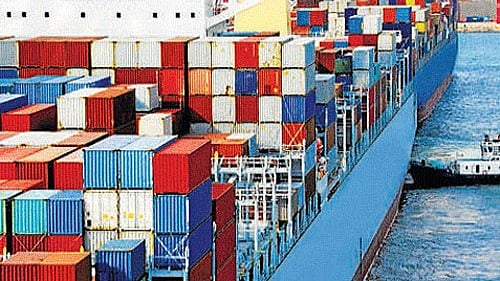
The export is skewed to only a few states, affecting uniform or inclusive growth in the country, said K Unnikrishnan.
Credit: Reuters Photo
Bengaluru: The growth of India’s export is largely dependent on what is happening in the US and Eurozones, K Unnikrishnan, Joint Director General, Southern Region Head, Federation of Indian Export Organisations (FIEO), noted on Tuesday.
He was speaking on the second day of a two-day workshop held at the Institute for Social and Economic Change (ISEC), in collaboration with the Lau China Institute, King’s College London (KCL), on "The Indian model Special Economic Zones (SEZs) beyond China". This is a collaborative project funded by the British Academy (Project Team: Dr Malini L Tantri and Prof S Manasi from ISEC; Dr Charlotte Goodburn, Dr. Jan Knoerich and Dr Soumy Mishra from KCL).
Additionally, he noted, export is skewed to only a few states, affecting uniform or inclusive growth in the country.
Some of the panellists who participated in-person at the workshop at the Institute for Social and Economic Change.
Credit: Dr Malini L Tantri
Following this, a roundtable discussion was held by various stakeholders to develop an SEZ toolkit that will explore policy derivatives and best practices from SEZs from India, China, and Africa. The toolkit will materialise over the next few months. “Once it is put together, we will make it accessible to people on the King's College website," said Dr Malini L Tantri, assistant professor, ISEC.
Speaking at the workshop on Monday, Bipin Menon, development commissioner, Noida SEZ, noted that the revised special economic zone (SEZ) policy being formulated by the union government might allow companies greater access to domestic markets.
Menon pointed at the example of China, which first set up four SEZs in Shenzhen, Zhuhai, Shantou and Xiamen in 1980-81. He argued that since they worked on different models in each zone, expecting a unique Indian model wasn't fair enough.
On Monday, the workshop dissected the environmental and economic perspectives of SEZs from different case studies, and propelled urbanisation in communities, helping villages transition into peri-urban areas.